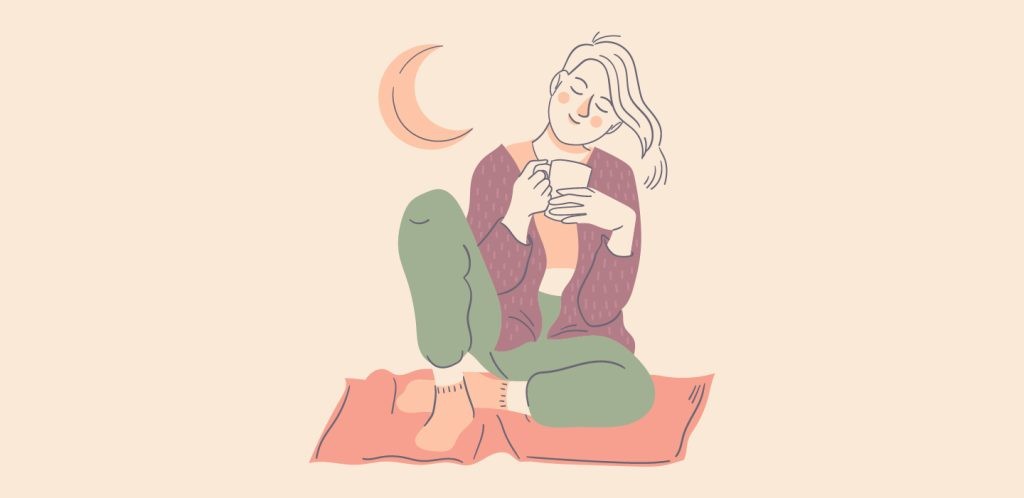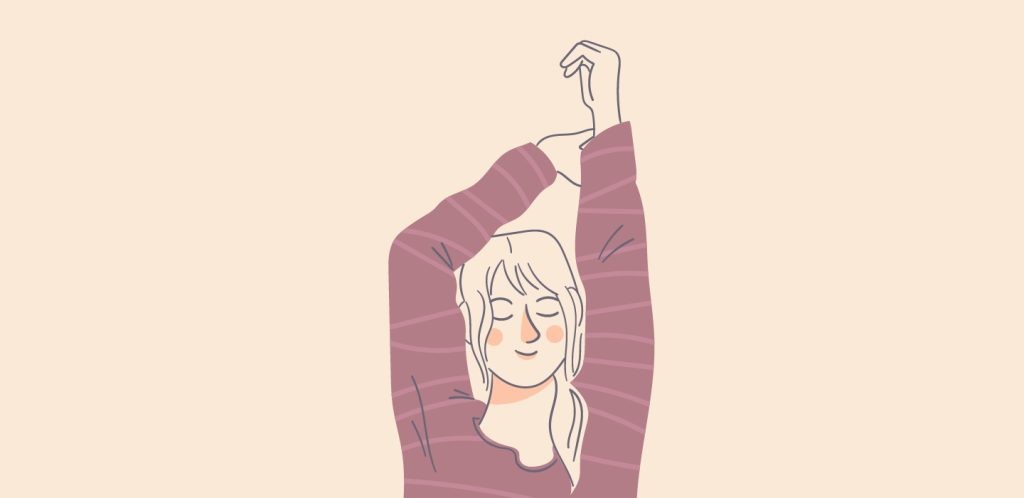MANILA, PHILIPPINES — It’s 6 p.m. on a weekday. You say goodnight to your colleagues online, turn off your laptop, and crawl to the couch. You flip past titles on Netflix, looking for the best movie to eat your freshly delivered pizza to. Then, you take a shower just before 9 — giving you about an hour to do your nightly skincare regimen that you religiously follow. And then you drift off to sleep, refreshed for another day of work tomorrow. Indeed, it’s giving the Gen Z work-life balance.
This is one of the hundreds of scenarios that millennials and Gen Zers live out five days a week. When they’re not watching Netflix, you can find them working out or meditating; playing video games or doing other hobbies; cooking their own meals while singing and dancing to their favorite songs; or catching up with friends over dinner and wine. They have a myriad of after-work activities to choose from, but one thing remains clear: they maintain strict boundaries between their jobs and their personal lives, and they’re absolutely resolute on keeping up self-care practices.
This newfound respect for boundaries practiced by the younger employees has also caught the attention of brands in different industries. Companies are quick to realize that if they want to reach these audiences better, they have to relate to them; they have to care about self-care too.
The awakening of a generation

In the latest trends report for 2024 from Dentsu Creative, the agency has highlighted Gen Z self-care as the first movement expected to make big waves this year for both the brands and the creatives who propel the industry. “We are already seeing brands advocating self-care now,” Dentsu Creative Philippines Chief Creative Officer Jerry Hizon shared. “This is a reflex response to the pre-pandemic push of hustle culture and startup disruption. Then, the pandemic forced us to look at our priorities. That’s why as a generation, Gen Z is rejecting this and advocating for a slower, gentler work culture,” he emphasized.
He points out that brands, especially those in the beverage and lifestyle categories, are now pivoting their product communications from helping people boost their productivity to encouraging people to enjoy the moment or be happy in the present. “Highly competitive entities like the NBA with their Mind Health campaign, and the NFL with their My Cause, My Cleats are going all in on mental wellness and self-care,” he added.
The kids are all right
The past four years have prompted the new crew of professionals to seamlessly adopt the hybrid lifestyle. They discovered that their career isn’t everything in life — it’s just one aspect of it. “Self-care has long been advocated by different generations, but of course, social media and the unprecedented access to it have amplified this. Ironically, social media and the various communications platforms contribute to the desire of the younger generations to insist on work-life balance and self-care,” Jerry explained. He cited that unlike the previous workforce composed of Gen X and boomers who could easily set boundaries once they set foot outside the office, work follows millennials and Gen Zers round the clock. Hence, there is a need for firmer boundaries to promote Gen Z and millennial self-care.
He goes on to express that in the modern world where almost everyone has access to the same tools, professional and personal circumstances have become very competitive and stressful. “You tend to prioritize work or others’ expectations over yourself. But now, there’s a conscious effort to subvert that — removing the guilt or stigma of prioritizing oneself over work or others.”
Clocking out of their daily grind on the dot, they now have enough time to rediscover old hobbies and spark new ones, reconnect with themselves, and pay attention to their overall well-being. They have a newfound discipline and respect for their own welfare.

Hustle culture is canceled in Gen Z self-care. Long live the soft life.
Before the pandemic, nearly every eager twenty-something has a day job that they spend extra office hours in, and at least one side gig to fill up their nights and weekends. This hustle culture was born not only out of necessity in the face of inflation, but because millennials and Gen Zers felt the pressure of having to achieve years’ worth of experience and success in such a short amount of time. In a race against the clock, these young professionals have exhausted themselves until they were only running on fumes. Two generations simultaneously burned out.
Picking themselves up and dusting themselves off, today’s younger workforce are filled with a new fervor for life — a soft life, that is. Emphasizing millennial work-life balance, gone are the days when emails still made their way to their inbox at 9 p.m., and of having more than two jobs to fulfill their sense of achievement. No más. Millennials and Gen Zers the world over have discovered that the thing they want most is to be able to relax and not be on edge 24/7. And to attain this, they figured out that self-care is the best self-defense against the dreaded burnout and the mental turmoil that comes with it. This means cutting a clear line between work and life; and prioritizing their peace of mind and their health over their jobs.

But this isn’t to say that they’re lazy. In fact, they still put in a lot of effort into their work and give it their all during their shift — but they won’t spend a second more when it’s time for them to log off. When the clock strikes six, they’re packing up to be with their pets, partners, plants, kids, friends, hobbies, or whatever it is that gives their lives meaning.
Make me-time the best time
With more time on their hands to take care of themselves, millennials and Gen Zers are able to explore all the self-care practices they want to in order to replenish their energy and zest for life. They understand that there’s no cookie-cutter approach to self-care, so they’re open to try out different things that make them feel invigorated.
Among the most popular ones is creating their own skincare regimen. The act of massaging the products onto their skin, applying a face mask while watching Netflix, and admiring their healthy, glowy complexion are productive yet relaxing ways for them to spend their evenings after work. Skincare has become part of their routine, which these concerned working adults pay close attention to. Along with these nightly self-care rituals, they also do “everything showers” which involve exfoliating, shaving, and masking in one go, and “bed rotting” which is basically spending your whole weekend in bed with your favorite snacks and shows.
The holistic lifestyles of the young have also harnessed the power of listening to their bodies. They eat balanced meals and healthier snacks, take multivitamins, get their eight-hour snooze every night, and hit the gym at least three times a week for optimum physical health. But as much as they pay attention to their physique, they have also learned to take care of their mental health and remember its role in their overall well-being. This is one of the salient points in Gen Z self-care.
They have incorporated meditation and journaling into their daily lives, and they’re more open about receiving therapy to gain clarity and peace of mind. They are more mindful, and have learned that living in the present is the key to living well. For millennial self-care, this means finding joy in the tiniest things and in everyday moments, like the way a ray of sun hits the trees while they’re having their cup of coffee by the window. They take any opportunity to escape stress and make themselves happy, even if it’s just buying themselves an ice cream cone while doing their weekly grocery shopping, or playing Jenga with their friends. They have shown that it doesn’t take much to be happy; you just need to change your perspective.

As an agency, Jerry shared that Dentsu Creative has initiatives in place to encourage its employees to put themselves and their lives first before their work. “Globally, Dentsu has Mental Wellness programs accessible to each employee like the Global Wellness Days, and mind health resources in our Dentsu dashboard. Locally, we have Wellness Wednesdays that enable our team members to get a midweek break to rest, do errands, catch up on sleep, and at least ensure a day without meetings. We also have mental wellness consultations provided by our HR and partners for those who need it. Going further down, in projects I am involved in, I tell our teams to have no internals after 7 p.m., and set it in the morning instead. Tired minds produce tired ideas. So it’s better to rest and have a fresh perspective the next day. There are a lot of times when you get good ideas from dreams!”
Millennial and Gen Z self-care isn’t selfish
In the short span of time that these millennials and Gen Zers have been part of the working class, it seems they have already unlocked the secret to a fulfilling life. From carving time outside of work to do what reenergizes them, to finding happiness in everyday moments, they are surely revolutionizing the way we honor ourselves, and how we balance work and life.
In his own ways, Jerry has also realized the beauty and benefits of self-care in his creative process. “I believe a rested mind is a productive mind. I have experienced many times working overtime, if not overnight, but the output isn’t that great; versus going home, getting a good sleep, and waking up with fresh ideas. A tired mind will resort to tired ideas or cliches, just to get it over with. Also, the more you expose your mind outside of work, the richer the work would be.”
Self-care isn’t selfish. By tending to our needs, we are able to grow into the best version of ourselves, live a soft life filled with treasured memories, and show up ready for everything we put effort into. After all, we are our own best and most important investment.








